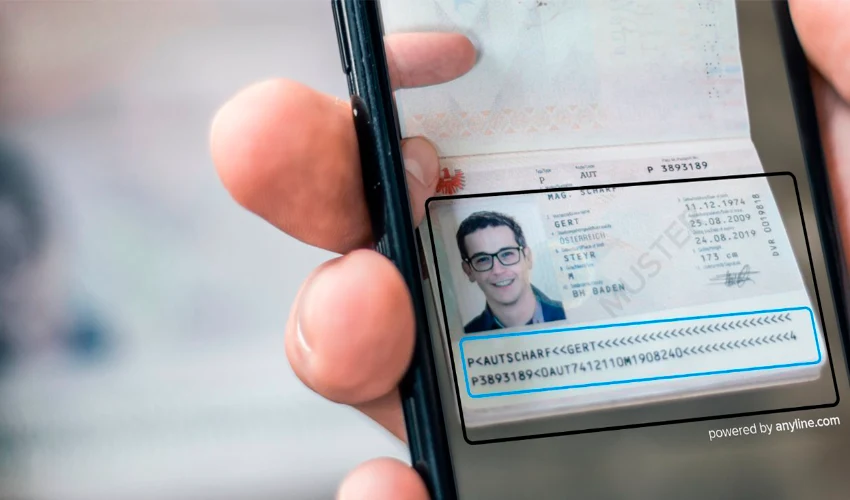In today’s digital age, the demand for faster, safer, and more reliable identification methods has led to the rise of scannable IDs. From airports and nightclubs to healthcare facilities and government institutions, scannable IDs are increasingly becoming the standard for verifying identity. But who exactly benefits from using these high-tech identification tools? Let’s explore the wide range of individuals, businesses, and sectors that gain from this growing trend.
What Are Scannable IDs?
Before diving into the benefits, it’s essential to understand what scannable IDs are. Scannable IDs refer to identity cards—such as driver’s licenses, state-issued IDs, or employee badges—that contain machine-readable data, typically in the form of a barcode, magnetic stripe, or embedded chip. These IDs can be scanned using a reader or mobile device to quickly retrieve and verify a person’s identity.
- Law Enforcement Agencies
Law enforcement officers benefit significantly from scannable IDs. During traffic stops or security checks, officers can scan a driver’s license to instantly access information like driving history, outstanding warrants, or criminal records. This immediate access improves officer safety, speeds up the process, and reduces human error.
- Government and Border Control
Scannable IDs are vital for government agencies and border control officers. Passports and enhanced driver’s licenses with embedded RFID chips help officials verify the authenticity of a traveler’s identity and detect forged documents. This strengthens national security and streamlines border crossings, making international travel more efficient.
- Healthcare Providers
Hospitals and clinics are adopting Scannable ID to improve patient care. When a patient presents an ID at check-in, healthcare providers can quickly access medical history, insurance details, and emergency contact information. This ensures timely treatment, reduces paperwork, and helps prevent medical errors caused by misidentification.
- Educational Institutions
Colleges and universities often issue student IDs that are scannable. These cards serve multiple purposes: gaining access to dorms and labs, checking out library books, purchasing meals, and attending events. Faculty and staff also benefit from easy attendance tracking and enhanced campus security.
- Businesses and Employers
Many companies use idbook badges for employee identification, time tracking, and access control. Employers benefit from improved workplace security, as access to sensitive areas can be restricted to authorized personnel only. Additionally, these IDs simplify payroll by accurately logging hours worked.
- Bars, Nightclubs, and Retail Establishments
Age-restricted businesses such as bars and liquor stores use scannable IDs to verify age and prevent underage access. Scanning IDs not only ensures compliance with the law but also protects businesses from fines and legal issues. The scanning process is quick, reducing wait times and improving customer experience.
- Event Organizers
Large events such as concerts, conferences, or festivals often utilize scannable IDs or tickets for entry. These systems prevent fraud, control crowd flow, and gather valuable attendee data. Organizers can use this information for marketing and to enhance future events.
- Transportation and Travel Industry
Airlines, train services, and car rental companies use scannable IDs to verify traveler identity. Airports in particular benefit from increased efficiency during check-in, security checks, and boarding. Travelers, in turn, enjoy quicker processing and fewer delays.
- Consumers and Everyday Users
Consumers themselves benefit greatly from using scannable IDs. Whether it’s getting through airport security faster, accessing a building, or proving age at a bar, these IDs make daily life more convenient. Additionally, scannable IDs offer enhanced privacy and security when linked with biometric data or secure databases.
- Tech Developers and Security Firms
Developers and companies that create scanning technologies, mobile verification apps, or secure ID systems also benefit from the widespread adoption of scannable IDs. As demand grows, so do business opportunities in identity verification, data protection, and software development.
Privacy Considerations
While scannable IDs offer numerous benefits, privacy remains a concern. Users must be aware of how their data is collected and stored. Companies and institutions using these systems should ensure compliance with data protection laws like GDPR or HIPAA, depending on their location and industry.
The Future of Scannable IDs
As technology evolves, scannable IDs will likely become even more advanced. Integration with blockchain, mobile wallets, and biometric authentication could further improve security and reduce identity theft. The adoption of digital driver’s licenses and virtual ID cards is already underway in several states and countries.
Conclusion
Scannable IDs offer significant advantages to a broad range of users. From improving security and efficiency to enhancing convenience and accuracy, these high-tech IDs are transforming the way we verify identity across industries. Whether you’re a law enforcement officer, a business owner, or an everyday consumer, the benefits of scannable IDs are clear—and the technology is only getting better.
